
This Airline Will Rent Out Clothes So You Can Travel Baggage-Free
Tourists and business travelers to Japan will soon be able to show up with little more than the
2023-07-05 11:46

South Korea Salvages North’s Spy Satellite in Intelligence Win
South Korea salvaged a failed North Korean spy satellite from the sea, giving it a rare direct look
2023-07-05 11:18

HSBC Tests Quantum Tech in London to Guard Against Future Hacks
HSBC Holdings Plc will become the first British bank to test an advanced data-security system being run by
2023-07-05 08:45
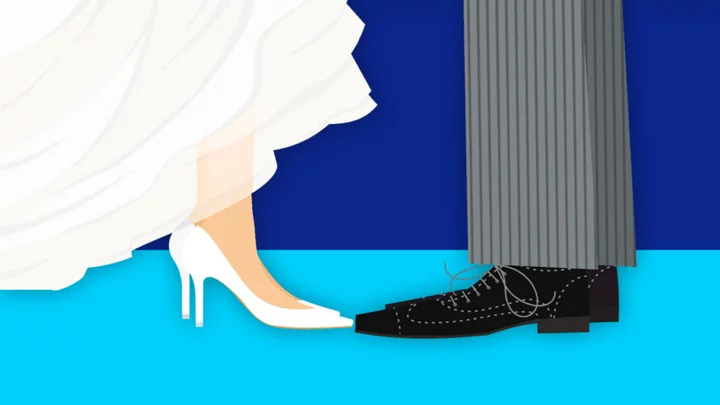
The Forgotten Fifth Line of the “Something Old, Something New” Bridal Poem
Something old, something new, something borrowed, something blue—and something else, too?
2023-07-05 05:17
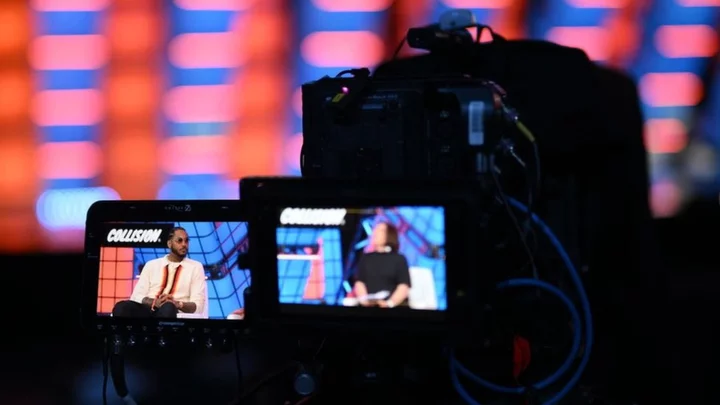
Canada media guide
An overview of the media in Canada, including links to broadcasters and newspapers.
2023-07-04 23:45
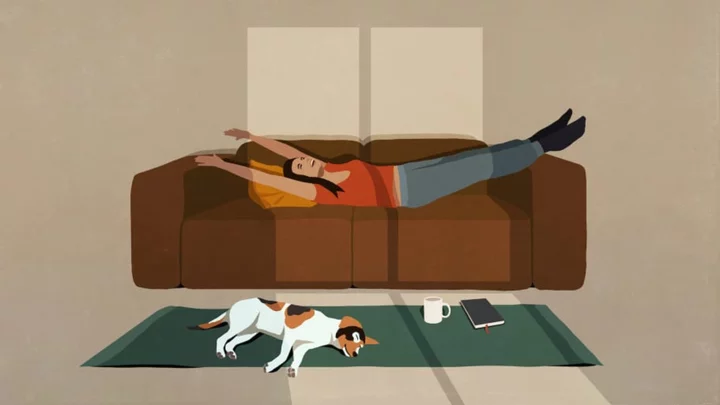
Lay vs. Lie: When to Use Each
The ‘laying vs. lying’ situation is tricky—but direct objects can help.
2023-07-04 21:24
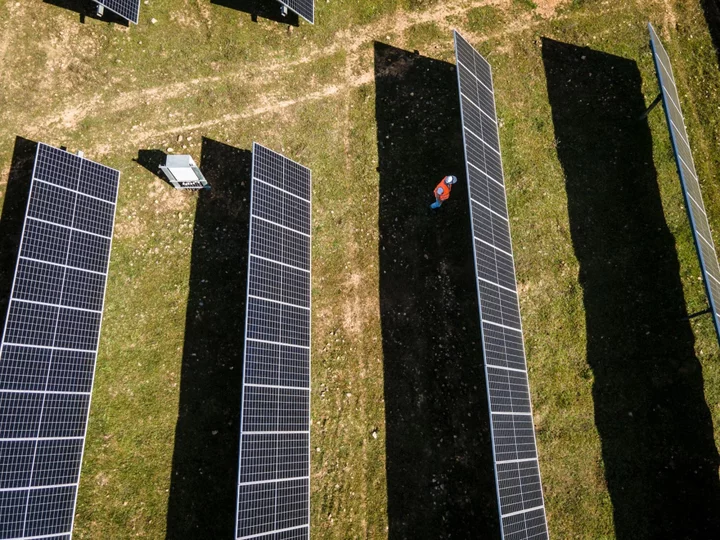
EU Needs to Invest an Extra €700 Billion a Year for Green Shift
The European Union must invest an additional €700 billion ($763 billion) a year if it’s to green the
2023-07-04 20:26
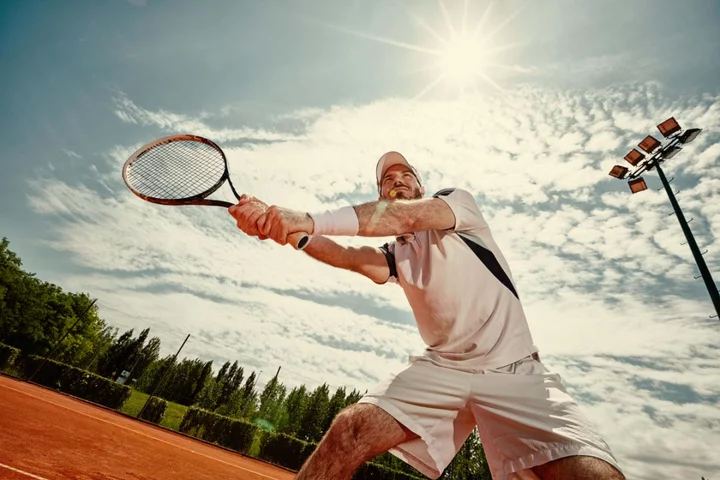
How tennis could be harming your body – and why it does you good
With Wimbledon underway and Nick Kyrgios already out due to injury, is tennis actually any good for you? Every tournament brings fresh injuries into the public eye, but the sport’s praises are often sung by fitness fans all over the world. So, how does it weigh up health and safety-wise? Is it worth investing some time in the sport if you enjoy Wimbledon? Tennis elbow The most common injury in tennis is tennis elbow, says Lucy Macdonald, physiotherapist at Octopus Clinic, and it’s something which has affected the likes of Andy Murray and Venus Williams. “Tennis elbow is the generic term for pain in the elbow, normally where irritation of the tendon runs over the elbow.,” she says. “It is often caused by a sudden overload on a tendon, in a way it is not used to, and it cannot cope with the forces that are on it. Treating it involves modifying what you are doing. “It can also be caused by other racket sports, and even things like breastfeeding a baby or cutting hedges and gardening,” she explains. But, it isn’t the end of tennis dreams. You can treat it. “Do not completely rest, modify the load going through the elbow, reduce the frequency and longevity of playing tennis, but things like physical support and tape can also help. “Changing your technique to take pressure off the tendon can help,” Macdonald explains. “The long-term treatment is to gradually build up the resilience of the tendon – a top spin stroke adds the most pressure – and alongside that, use static contractions – exercises that are just contracting the muscle, holding it and then relaxing.” Wrist injuries Kyrgios has pulled out of Wimbledon already, due to a wrist injury. “People may get wrist injuries if they fall and fracture the wrist. Or if they get a repetitive strain injury – if you use your wrist a lot in terms of the strokes you use with a lot of topspin – you can get some overuse and cause a flare up,” says Macdonald. Ankles and knees “Being on a slippery court, it can be easy to go over on your ankle,” she continues. “It happens in a lot of sports, if you’re running for a ball or trying to change direction. “You might get some knee problems, as they take such a hit generally with any propulsive sport – you get wear and tear on the knees, and sudden twists could impact your medial meniscus. Strength training is the best thing for that.” The benefits Should you be worried about all these injuries if you want to start playing, though? “The main cause of injuries in tennis is the sporadic nature people play it. If they suddenly go and play once every few months, the body is not used to the movements required in tennis, ” Macdonald notes.“You may suddenly run across the court and strain your calf or rupture your Achilles, because you haven’t run in months. “If you play it regularly and are consistent with the amount you play, it can be really beneficial,” she says.Any exercise is good, but the social aspect of tennis is hugely motivating, if you’re meeting up with three friends to play tennis, you have to show up – it gets you exercising regularly if you do it consistently. Tennis is beneficial for “increasing your heart and breathing rate, which is really good for your cardio and respiratory system. It keeps the range of motion in your shoulders, improves your balance with direction changes, and reduces your risk of falling,” says Macdonald. So, don’t let the risk of injury put you off. “There are so many positives that outweigh the negatives. Exercise, in general, extends your life span, and every illness out there is reduced by doing exercise. Even though it may have some impact on our musculoskeletal system, it is overwhelmingly positive for your mental and physical health.”
2023-07-04 19:51

Roundup: Nina Agdal, Logan Paul Engaged; Anthony Edwards Lands Huge Extension; Home Run Derby Contestants Revealed
Nina Agdal and Logan Paul are engaged, Anthony Edwards got a huge extension, MLB Home Run Derby contestants revealed and more in the Roundup.
2023-07-04 19:20
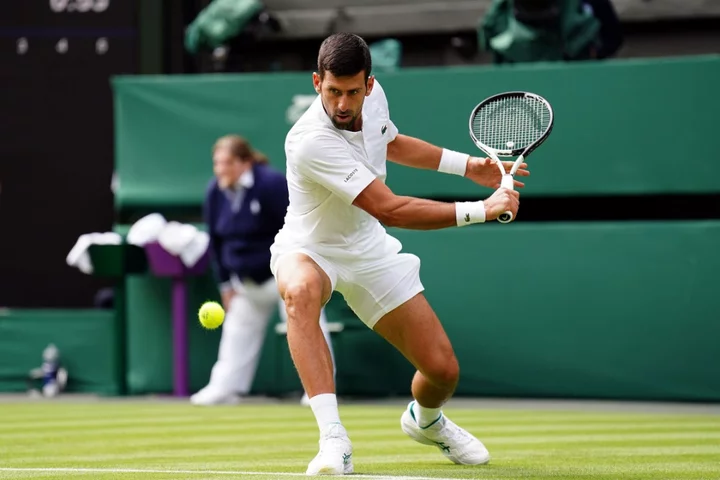
This is how Novak Djokovic is preparing to win Wimbledon
Tennis won Novak Djokovic over when he was just four years old. Since then, the Serbian professional tennis player established himself as a reigning men’s champion. In July 2006, he won his first Association of Tennis Professionals (ATP) event, and reached the semi-finals at Wimbledon and the French Open a year later. The 36-year-old also advanced to the finals of the US Open in 2007, but lost in straight sets to the former Swiss professional tennis player Roger Federer. He managed to win his first Grand Slam tournament at the Australian Open and was awarded a bronze medal at the 2008 Beijing Olympics. Though Djokovic’s performance has plateaued at some points, his hot streak has continued over the last 16 years. He claimed his 21st Grand Slam championship after winning Wimbledon in 2022 and gained his 10th title at the Australian Open, crowning both him and Rafael Nadal with the most Grand Slam men’s singles championships. With the 2023 Wimbledon Championships in full swing until July 16, how will Djokovic prepare himself both mentally and physically to win? Diet Djokovic starts his day with raw celery juice — which has anti-inflammatory properties – and sometimes drinks it before, during and after matches. Celery is about 90% water, so it’s great for hydration first thing in the day, especially when you don’t feel like chugging down a glass of water. On other occasions, he drinks the green goddess smoothie, “which is a load of green things chucked in and blended. In the food industry, you can get green goddess dressings, sauces and juices, which all have kale, spinach, peas, mint, cucumber, apple and spirulina powder all blended into one”, says celebrity private chef Ethan Russell. And for breakfast, Djokovic would normally eat a power bowl — it’s got a lot of healthy fats, grains, and fruit in it — or have it as a snack before exercising. The clear number one rule is being gluten and dairy-free. “It’s a choice many athletes make, especially if they want to feel and perform their best. Gluten and dairy can cause irritation,” Russell says. There are so many different dairy and protein alternatives at the moment, such as coconut, soy and almond. “The bowl has different types of grains, gluten-free granola — with pumpkin seeds and goji berries — then a low sugar style muesli,” he adds.“If you are an athlete and trying to keep your sugar low, you can opt for dairy-free yoghurt and manuka honey, which is quite expensive and very sought after, with its anti-inflammatory properties. People use it in food and skincare, making it a super food. The bowl is then topped with blueberries and strawberries, packed with natural sugars.” Warming-up Djokovic would usually start warming-up with his physiotherapist, then move onto to mobilisation and movement exercises, to minimise the risk of major injuries. Warm-ups can be anything from the running man, squat reaches to the sky and lunge rotations, all of which encourage great blood circulation. A match can last one and a half hours, and there are so many things to manage on match days, according to Mark Taylor, who coaches British tennis player Ryan Peniston and also works at the Junior Tennis Coaching academy. “They play all year round and often under immense pressure. It’s why I also work with a sports psychologist,” he says. Mindfulness Djokovic is heavily into mindfulness, and might begin his day with silent meditating — especially if he’s got an important game to focus on — in a grounded way, to promote mental clarity, calm focus and energy. “Most of us find it difficult to sit still,” says Loren Peta, yoga teacher and personal trainer. “But gentle movement and box breathing — where you draw a box with your mind’s eye to help you stay present — is a great way to transition from a state of doing to state of being.” Whilst in conversation with former Spanish tennis player Alex Corretja at the The House of ASCIS event last Friday, Djokovic opened up about his mental health and wellbeing. “If we are talking about mental strength and preparation, and how it affects performance, I feel like half of the work is already done before you step out on to the court – also known as the battlefield,” Djokovic said. “It’s why I try to only peak at the biggest tournaments and take more time than I used to, to get my mind and body into perfect harmony. My body is responding differently than it was 10 years ago, so I have to be more specific with my preparation, work, training and recovery. I believe in a holistic approach to this sport, and everything else in life. “It’s about everything you do, eat, the relationships around you, how you perceive yourself, the traumas and emotions that are suppressed in you. I know for me, if I suppress something, it will always surface on the court. The more you put these things aside, the bigger the monster will become. “If you fail to prepare, it’s going to be a difficult mountain to climb during the match. Tennis isn’t a sprint, it’s a marathon as well.” Getting the right footwear There are certain things that are important to keep in your kit. But for Djokovic, his racket and shoes are the two most important items for every tennis player, especially at his level. Good shoes adapt to the way a tennis player moves their feet, to ensure the right support and exact comfort can be added, if required. For example, improved extra heel cushioning and ankle support. “The details [are important],” said Djokovic. “Every single thing matters. How you move, how you feel with your racket and shoes. You need to be comfortable with what you are wearing, because it’s going to help you perform and move better. “I probably move differently to most of the guys out there – even on grass, I slide. [So I need] really flexible shoes that allow me to stop when I need to stop, and change directions when I need to change directions. It can’t be too light or too heavy.” Read More Charity boss speaks out over ‘traumatic’ encounter with royal aide Ukraine war’s heaviest fight rages in east - follow live Money-saving ways to garden on a budget 8 budget-friendly ways to juggle childcare and work during holidays Dior’s couture show was the epitome of quiet luxury
2023-07-04 16:58
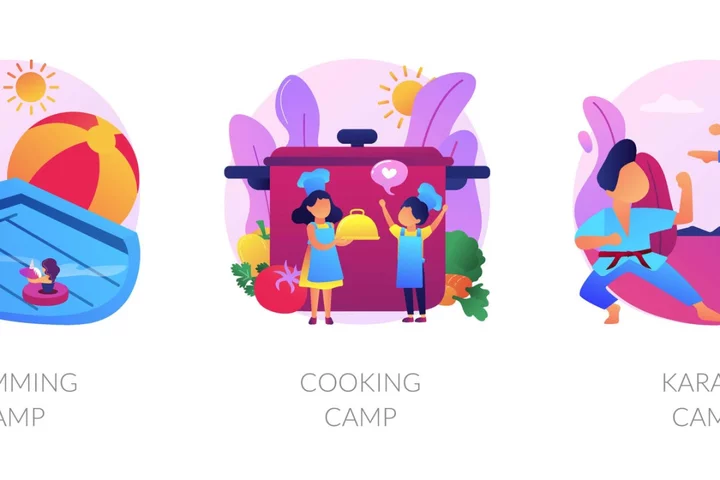
8 budget-friendly ways to juggle childcare and work during holidays
Idyllic images of happy children playing in sunny gardens during the summer holidays aren’t so easy to turn into a reality when you’re a working parent. Instead of wondering how full to fill the paddling pool, working mums and dads are more likely to be doing their sums about paying for the childcare they need so they can work as their kids enjoy the summer holidays. Emily Pritty, joint head of legal advice service at the charity Working Families, points out that its recent research found four in 10 low-income families have gone into debt to pay for childcare, nearly half have had to reduce their hours, and a fifth have even quit their job to manage childcare. “The summer holidays are a source of stress and anxiety for many working families whose work situation doesn’t allow them any flexibility to manage childcare and who can’t afford the additional childcare costs,” she says. “School holidays are the pinch point for so many working families with school-aged children, as the usual pattern of caring and routine changes, and the demands of work don’t reflect this.” But there are ways to make summer childcare more affordable for the UK’s 17.5 million working parents and carers, says Sabine Kobayter, chief marketing officer at Pebble, which connects parents with childcare and activity providers. “The summer holidays can be really hard for parents who are trying to juggle work and childcare – while also trying to feed hungry minds with activities that will stimulate children,” she says. “There’s a huge variance in the cost of finding childcare, and trips out as a family can quickly add up. The good news is there are many solutions to help find affordable ways to keep children entertained whilst spinning work plates too.” Here are budget-friendly summer childcare solutions suggested by Kobayter and Pritty… 1. Use holiday camps From sports camps to street dance, drama, academic and cookery, holiday camps start from £16.50 per day, says Kobayter. “Holiday camps are great as they often mirror the working day, and children can find camps that match their hobbies and interests,” she says, explaining that as holiday camps increase in popularity, the trick to getting a space is to book your child’s slot as early as possible. “This also allows you to plan your work schedule with the peace of mind knowing your children are being cared for, while doing something they love, and meeting new friends.” 2. Take paid or unpaid leave Many parents will have to use their annual leave to look after their kids over the summer, and if they don’t have enough left, unpaid leave is a statutory option, says Pritty. “The burden of taking unpaid time off does tend to fall more heavily on women due to the gender pay gap, as for family finances, often the decision is for the parent on the lower income to take the leave.” 3. Stretch out free childcare You’re entitled to 30 hours of free childcare in England, and Pritty suggests: “You could stretch your entitlement so you receive fewer hours each week but get the childcare during school holidays too.” Check whether your childcare provider will allow you to do this. 4. Get friends and family to help Many parents rely on informal networks of friends and family to help cover the gaps in caring throughout the year, and Pritty says: “This is particularly prevalent in school holidays, given the cost of holiday clubs and formal childcare. Parents often group together with friends to cover particular days and then reciprocate in a shared care arrangement.” 5. Use free kids’ activities “Not everything costs,” promises Kobayter, who suggests that if parents use annual paid/unpaid leave, or get friends and family to help with childcare, they keep subsequent costs down by searching for free activities local to them, and lock in days out as a family. “Museums, national parks, events in local parks – there’s a surprising amount available,” she says. 6. Try ad-hoc childcare Until recently, childcare needed to be locked in months, sometimes even years, in advance, says Kobayter, but now childminders and childcare providers are starting to enable ad-hoc bookings for parents in need. “As work becomes more flexible, childcare needs to as well,” she observes. “If you have a last-minute need to book childcare, all is not lost.” Pritty says the Family and Childcare Trust can provide details about your local Family Information Service, which will in turn be able to tell you about available summer childcare including childminders, nurseries, out of school clubs and any holiday schemes running in your local area. 7. Use vouchers if possible Childcare vouchers, tax-free childcare and the childcare elements of working tax credit and universal credit can all be used in holiday clubs, if the childcare is registered or approved, says Pritty, although she warns that not all childcare providers accept vouchers and they need to be signed up to tax-free childcare. You can check the types of childcare that you can get help with. 8. Check you’re getting the right financial help Pritty suggests parents check they’re getting the childcare support they are entitled to, by using this online calculator if necessary.
2023-07-04 15:49

Blur 'pull out of festival headline slot after Dave Rowntree injury'
Blur have pulled out of a headline slot at France’s Festival Beauregard this week after drummer Dave Rowntree picked up a knee injury, just days ahead of their Wembley Stadium shows on Saturday (08.07.23) and Sunday (09.07.23).
2023-07-04 15:27
